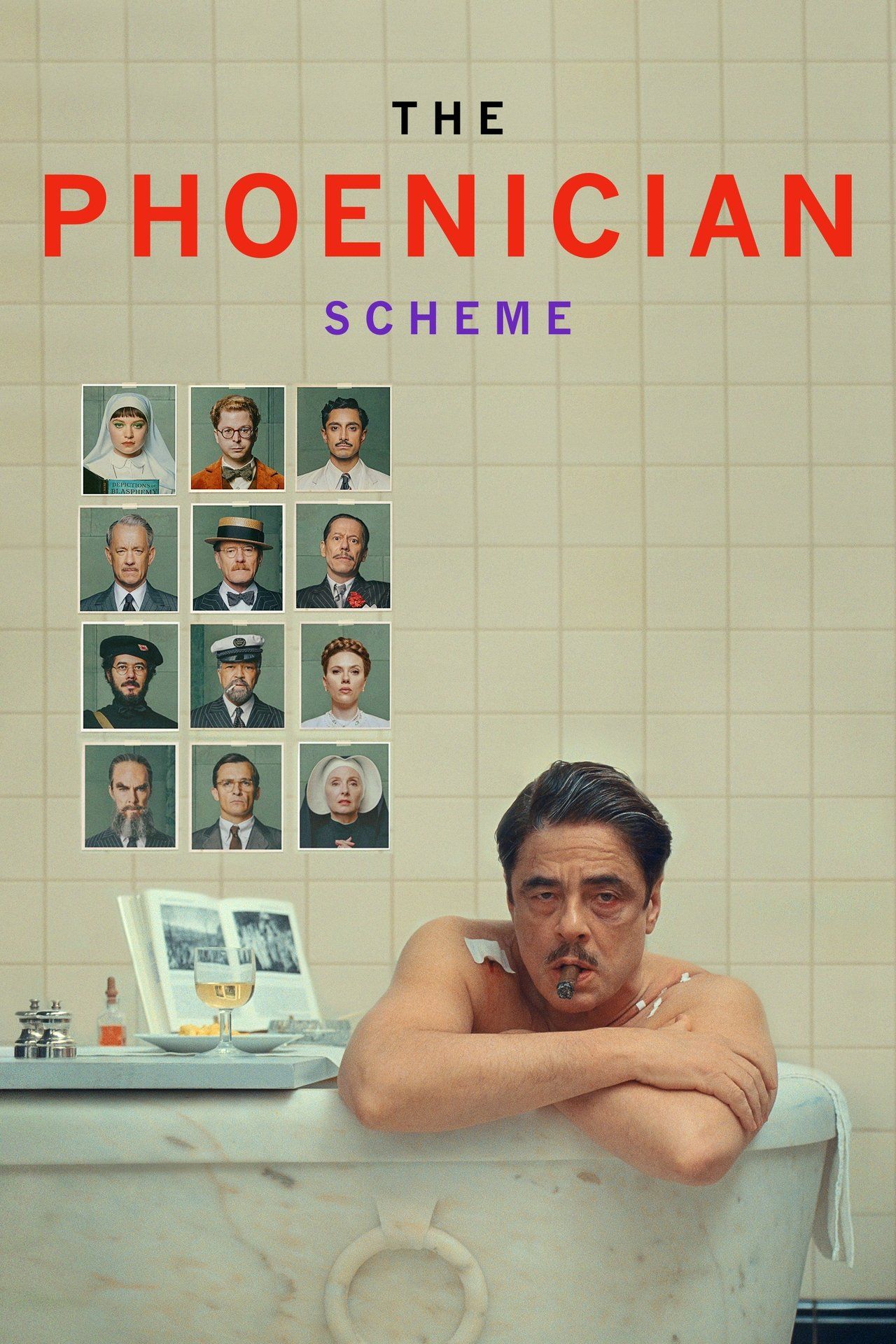The Phoenician Scheme
The name of this website is a subtle callback to one of the greatest Wes Anderson films of all time The Grand Budapest Hotel, so it should be no surprise that I am inclined to like the famed auteur’s work, but even discounting that, I think The Phoenician Scheme is a great movie on its own and one of the best in Anderson’s filmography.
The Phoenician Scheme is a departure from Anderson’s last two feature films, The French Dispatch and Asteroid City. The former was effectively an anthology meant to parallel the articles in a literary magazine and the latter a TV staging of a play that was full of meta-narrative devices. This film instead features a straight line plot, that while the details of which might be a little nebulous to the viewer, the film at all times lets you know of your progression through it by a constantly updating checklist of people and places.
The film stars returning Wes Anderson alumnus Benicio del Toro as Zsa-zsa Korda, a wealthy industrialist with a penchant for surviving plane crashes, and Anderson film debutant Mia Treapleton as his estranged, nun-in-training daughter.
It opens with a shockingly violent event on Zsa-zsa’s plane that causes it to crash. He is momentarily believed to be killed in the crash, but instead has a “biblical” vision—and apart from some scrapes, bruises, and a random organ he couldn’t shove back into his body, he miraculously survives again. Perhaps as a side effect of his vision, once he returns home he decides to reconnect with his only daughter Liesl and offer her the chance to be his sole heir upon his timely or untimely death. He also proceeds to explain to her the titular Phoenician Scheme which is a complex set of interlocking infrastructure projects that Zsa-zsa has been organizing and maneuvering into place via a number of organizations and oligarchies across the fictional area of the middle east. The plans are revealed in, perfect Anderson fashion, from a set of differently sized shoe boxes, each representing a different contributor or location relevant to the scheme. The smallest, but most important of these, is “The Gap”, which he refuses to elucidate more at the time.
Liesl agrees to the arrangement on a trial basis with the hope that she can find out more about why her mother was killed. Shortly afterwards, the US industrial complex begins a sabotage effort on the price of materials that are used in the completion of the scheme. These price increases explode “The Gap” which Zsa-zsa then finally defines as the difference between how much has been pledged by all the parties involved in the Scheme and the actual end cost. This begins the driving force of the movie as Zsa-zsa and Lisel, along with insect tutor Bjorn played by comedy super star Michael Cera, go from location to location in a mostly fruitless attempt to close “The Gap”.
Along the way they encounter a rogues gallery of recent Wes Anderson actor favorites, including Bryan Cranston, Tom Hanks, and Jeffrey Wright. In the course of events Zsa-zsa has more “biblical” flashes that do give us the opportunity to see long time Anderson favorite Bill Murray in a brief cameo as God. A well deserved casting choice I have to say.
The actual mechanics and outcome of the plot related to “The Gap” and the infrastructure projects themselves is irrelevant. In reality the goal of the Scheme was to reunite father and daughter and make the family whole again. It’s my understanding that Anderson and co-writer Roman Coppola both have daughters which I’m sure influenced heavily the story. I’ve also seen some astute analysis of the movie saying that the scheme in the movie is an analogue for creating and seeing a movie through to completion. If that’s the case I hope for everyone’s sake there is a lot less bloodshed on the set than is implied in the movie.
Before closing, I would be remiss in not mentioning the soundtrack. Long time musical collaborator Alexandre Desplat is back with a percussive and driving score that moves the action along.Also worth noting: the movie clocks in at a cool 102 minutes—a rarity for modern features.
In summation, I think that The Phoenician Scheme is one of Anderson’s best films and is solidly in my top five of his oeuvre, and it’s one that I think I’ll revisit often in the future.
- ← Previous
The Story Collector - Next →
Polybius

